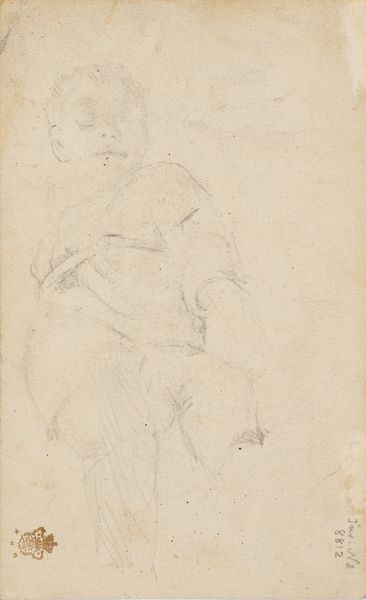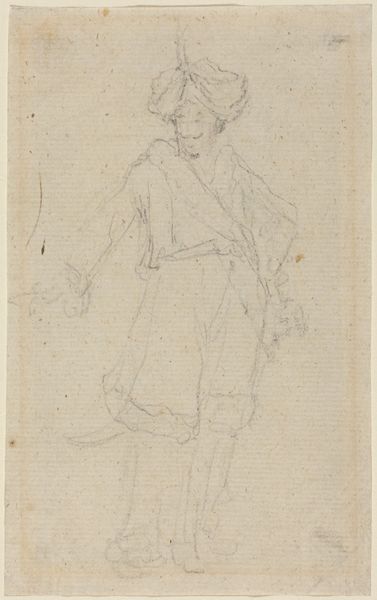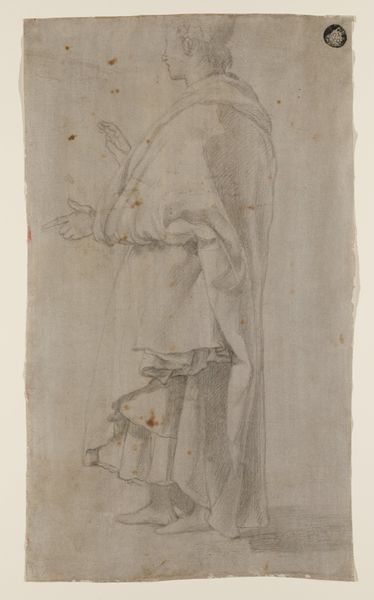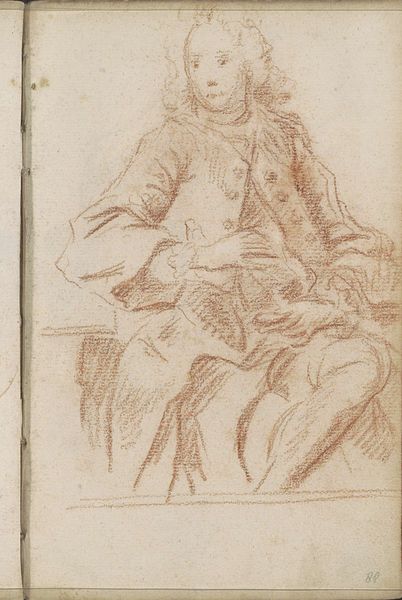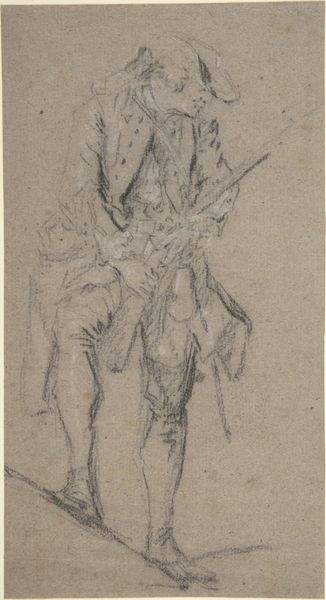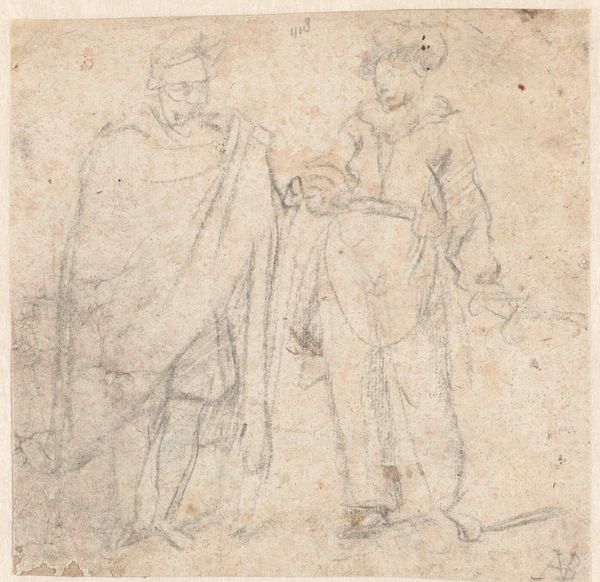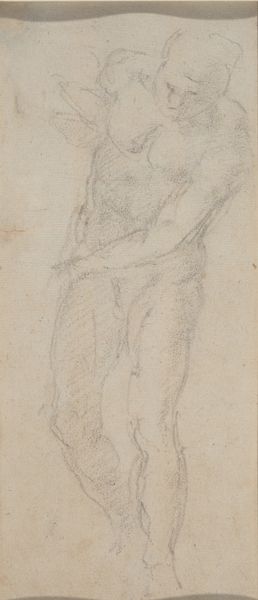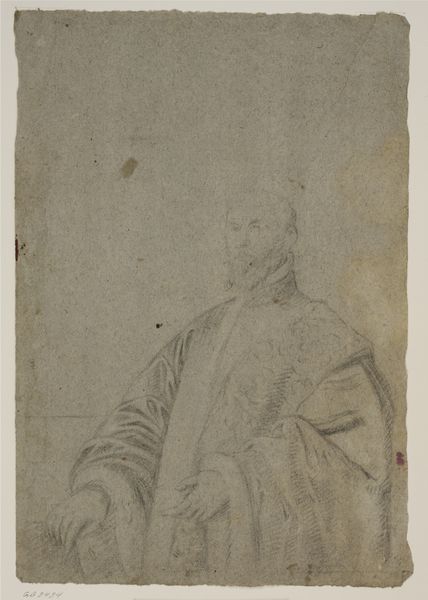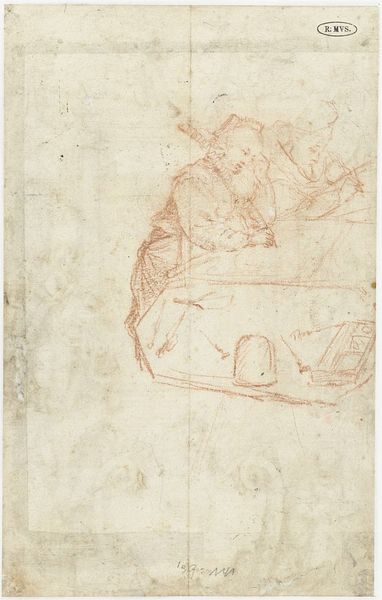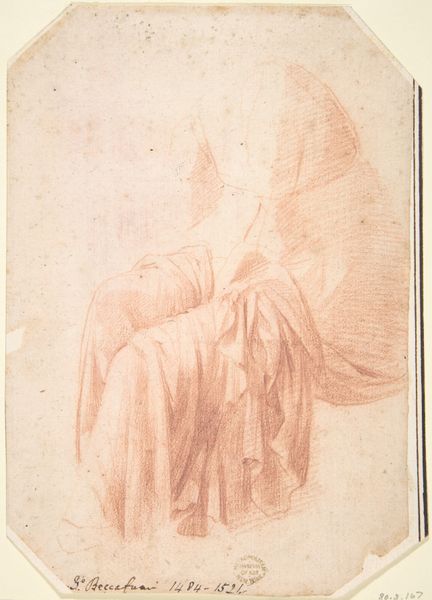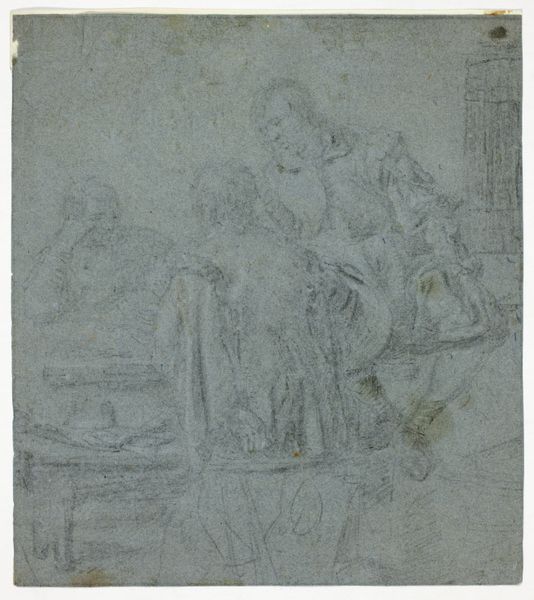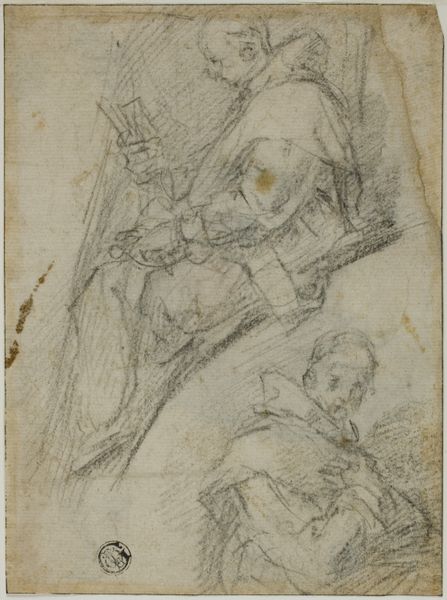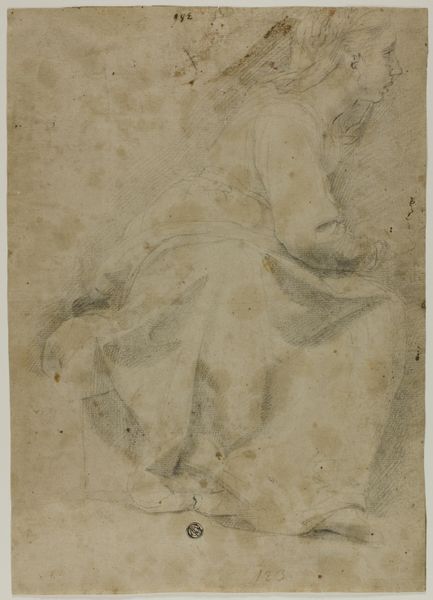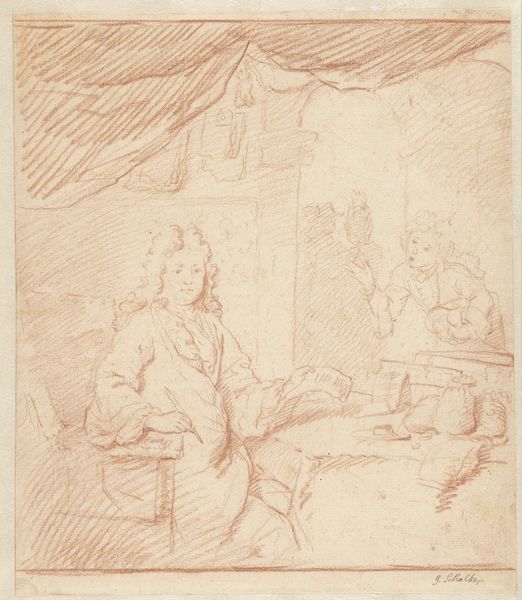
drawing, print, paper, pencil, chalk, graphite
#
portrait
#
drawing
# print
#
pencil sketch
#
paper
#
pencil
#
chalk
#
graphite
#
academic-art
Dimensions: 287 × 223 mm
Copyright: Public Domain
Editor: We're looking at William Hoare's "Portrait of a Man," date unknown. It's a drawing made with graphite, pencil, and chalk on paper, and it gives a preliminary, almost ghostly, impression. What catches your eye when you examine the structural elements of this piece? Curator: Initially, I observe the strategic utilization of line and value to articulate form. Notice how Hoare employs hatching and cross-hatching techniques to suggest depth and volume in the sitter's drapery and facial features. Consider, too, how the limited tonal range impacts our reading of the composition, generating a subtle interplay between light and shadow, and subsequently affecting the overall mood. Does this restrained palette influence your interpretation? Editor: It definitely lends an air of classical restraint. It also gives the drawing an incomplete, mutable quality, as though the subject could step off the page at any moment. Is that due in part to the apparent lack of detail in certain areas, like the background? Curator: Precisely. The lack of firm contours in those peripheral zones encourages the eye to focus upon the primary subject. It is in this delicate dance between defined and undefined space where the vitality of the sketch resides. Moreover, we might ponder on the materiality of the support itself – paper – as a participant in constructing meaning here, given its porous texture which absorbs rather than deflects light. Editor: That's fascinating! I hadn't considered the paper itself as playing such an active role. Curator: Observing these structural dynamics, in their nuanced arrangement, helps uncover the artist's strategic intent and the work's formal qualities. Editor: Thanks! Thinking about form in that way gives me a new perspective on unfinished sketches.
Comments
No comments
Be the first to comment and join the conversation on the ultimate creative platform.
